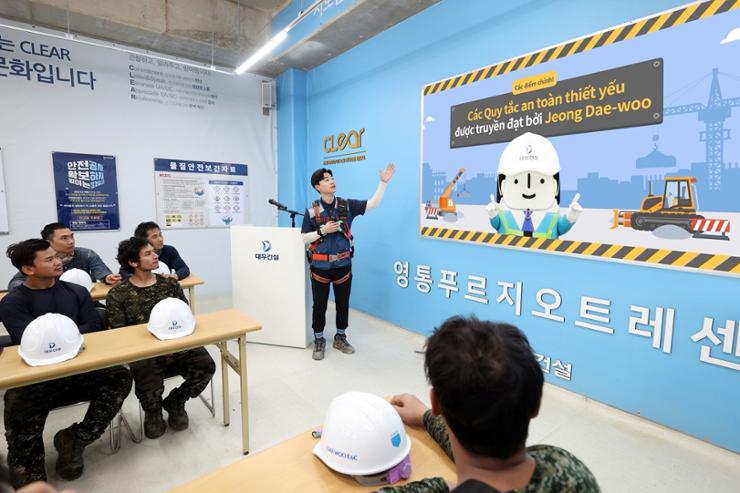- HD Hyundai’s subsidiary, KSOE, introduces AI Agent for precise translations at shipyards.
- AI Agent supports 11 languages, specializing in technical shipbuilding terms.
- Daewoo E&C distributes multilingual safety guideline videos across construction sites.
- Focus on improving communication to prevent industrial accidents exacerbated by language barriers.
- Government urges enhanced safety measures following incidents involving foreign workers.
Main AI News:
In response to heightened concerns over language barriers contributing to industrial accidents, companies reliant on migrant labor are intensifying efforts to enhance communication with foreign workers. HD Korea Shipbuilding & Offshore Engineering (KSOE), a subsidiary of HD Hyundai overseeing its shipyards, has introduced the “AI Agent,” a cutting-edge translation service powered by generative artificial intelligence (AI). Deployed initially at HD Hyundai Samho in Yeongam County, South Jeolla Province, this innovation aims to overcome the limitations of existing translation apps, which struggle with specialized shipbuilding terminology and dialects from workers’ home countries.
Drawing on a vast dataset encompassing 13,000 shipbuilding terms and 4,200 sentences, the AI Agent promises accurate translations across 11 languages, including Vietnamese, Uzbek, Nepalese, and Thai. HD KSOE plans to expand its implementation to HD Hyundai Heavy Industries and HD Hyundai Mipo later this year, emphasizing the crucial role of precise instructions in ensuring the safety of foreign workers.
Simultaneously, Daewoo E&C has launched a proactive initiative, disseminating instructional video clips outlining safety guidelines in English and 10 other languages at construction sites nationwide. This initiative represents a significant shift from previous methods that relied on English-language materials and human interpreters, which often fell short when communicating detailed safety protocols in languages like Vietnamese, Kazakh, and Uzbek, prevalent among construction workers.
“As we witness an increasing proportion of foreign workers in critical industries, ensuring their comprehension of safety protocols is paramount,” remarked a Daewoo E&C spokesperson. The urgency for improved safety measures was underscored following a tragic fire at a battery factory, where a majority of the casualties were foreign nationals. In response, government authorities have urged manufacturers and construction firms to enhance safety measures, including the use of pictograms and professional interpreters to relay crucial safety information effectively.
The Ministry of Trade, Industry, and Energy reported that foreign workers constituted 86% of new hires at shipyards last year, highlighting the growing reliance on international labor in the sector. Similarly, data from the Construction Workers Mutual Aid Association revealed a significant rise in foreign construction workers, underscoring the need for robust safety initiatives tailored to diverse linguistic and cultural backgrounds.
Conclusion:
The initiatives by HD Hyundai and Daewoo E&C signify a strategic shift towards leveraging advanced technology and multilingual communication to enhance workplace safety in industries heavily reliant on foreign labor. This proactive approach not only addresses immediate safety concerns but also underscores a growing market need for innovative solutions that cater to diverse linguistic and cultural backgrounds within industrial settings. Such efforts are pivotal in setting new standards for industrial safety and operational efficiency amidst increasingly globalized workforce dynamics.

